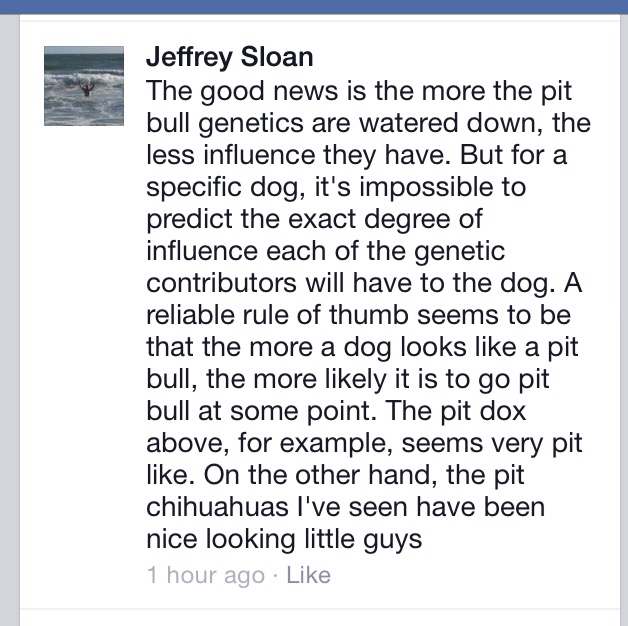Now- I’m not a science whiz or a
genetic professor, but I do have a
functioning brain cell with the
ability to research and debunk
BSL Bullshit.
gathered his “reliable rule of
thumb” from. “The more the dog
looks like a pit the more likely it
will go pit?” Now- I’ve been
looking EVERYWHERE for any
source of data that backs that
statement up and I’ve found
nothing.

When you breed a dog for a purpose- or “purpose bred” for specific traits and behaviors it’s understandable and expected for that specific bred dog to behave in such manner. As the famous Gary Wilkes who wrote an article for DogsBite.org.
Now- according to Gary Wilks, he comes from a long line of southern pit bull fighters who purposely bred fighting dogs. He acknowledges how his family dogs were bred to create their desired fighting dog- but all that points out is- a purpose bred pit bull to be a fighting dog will be exactly that- they hope.
But what happens when you have the genetic mish mash of… Pit bull, healer, lab, collie and only God knows what? Well, according to Dogsbite.org members- somehow the “pit bull gene” ( which consists of multiple genetic contributions…) is just so BAD ASS – that it squashes every genetic contribution.
inheritance in organisms occurs
by passing discrete heritable units,
called genes, from parents to
progeny.
So, it makes me wonder-
considering many dogs- such as
mine are labeled “pit mixes” aka
MUTTS-, just how should these
dogs behave?
thought- the 4th
generation of this puppy
should be-
1. Dog aggressive
2. Herder
3. Retriever
4. Short, long, soft,
textured fur
5. Purple tongue
6. Stand offish
7. Friendly
8. Single owner preferred
9. Family friendly
10. Large
11. Medium sized
And a kazillon of other
characteristics.
for genetics?





.jpg)